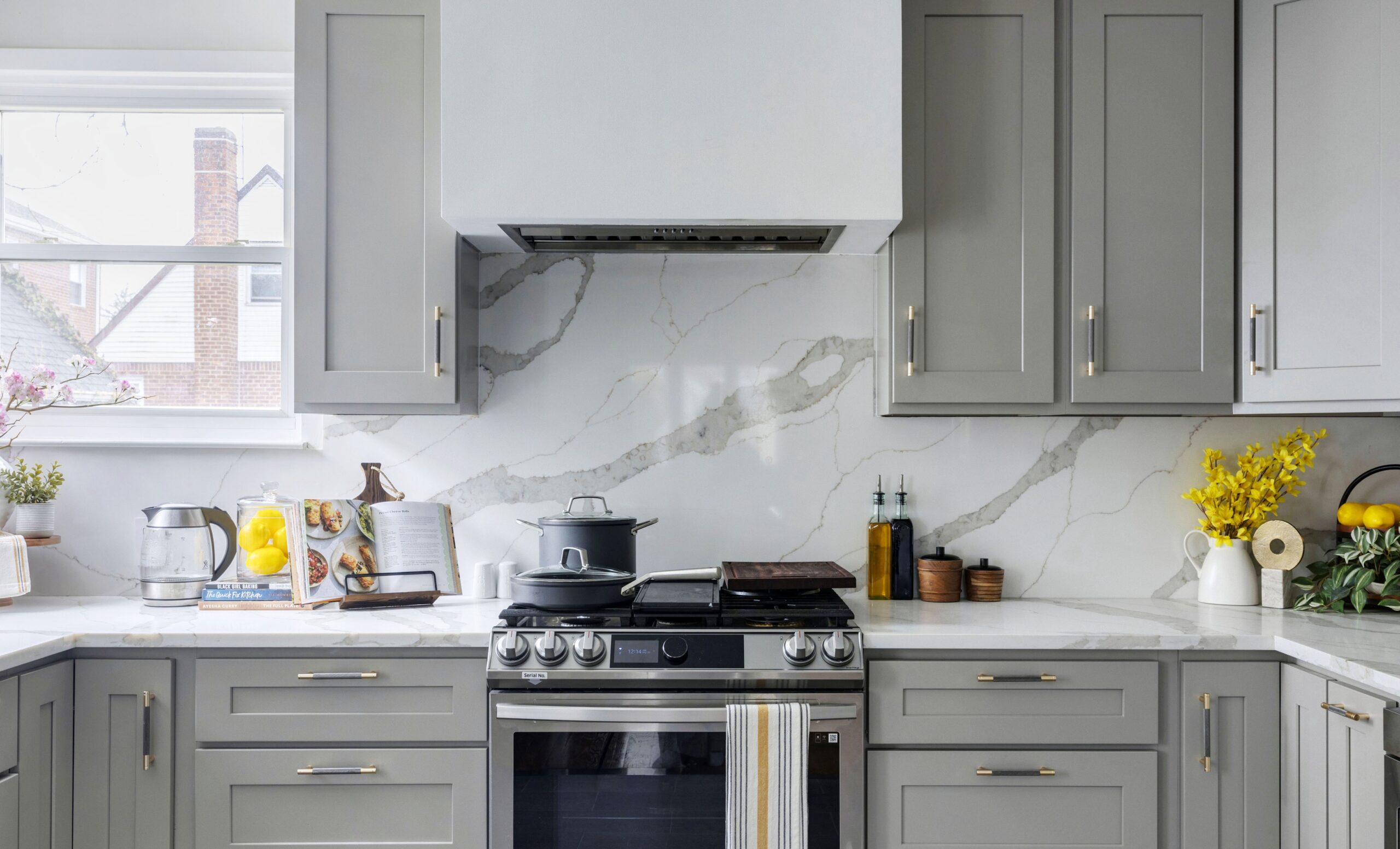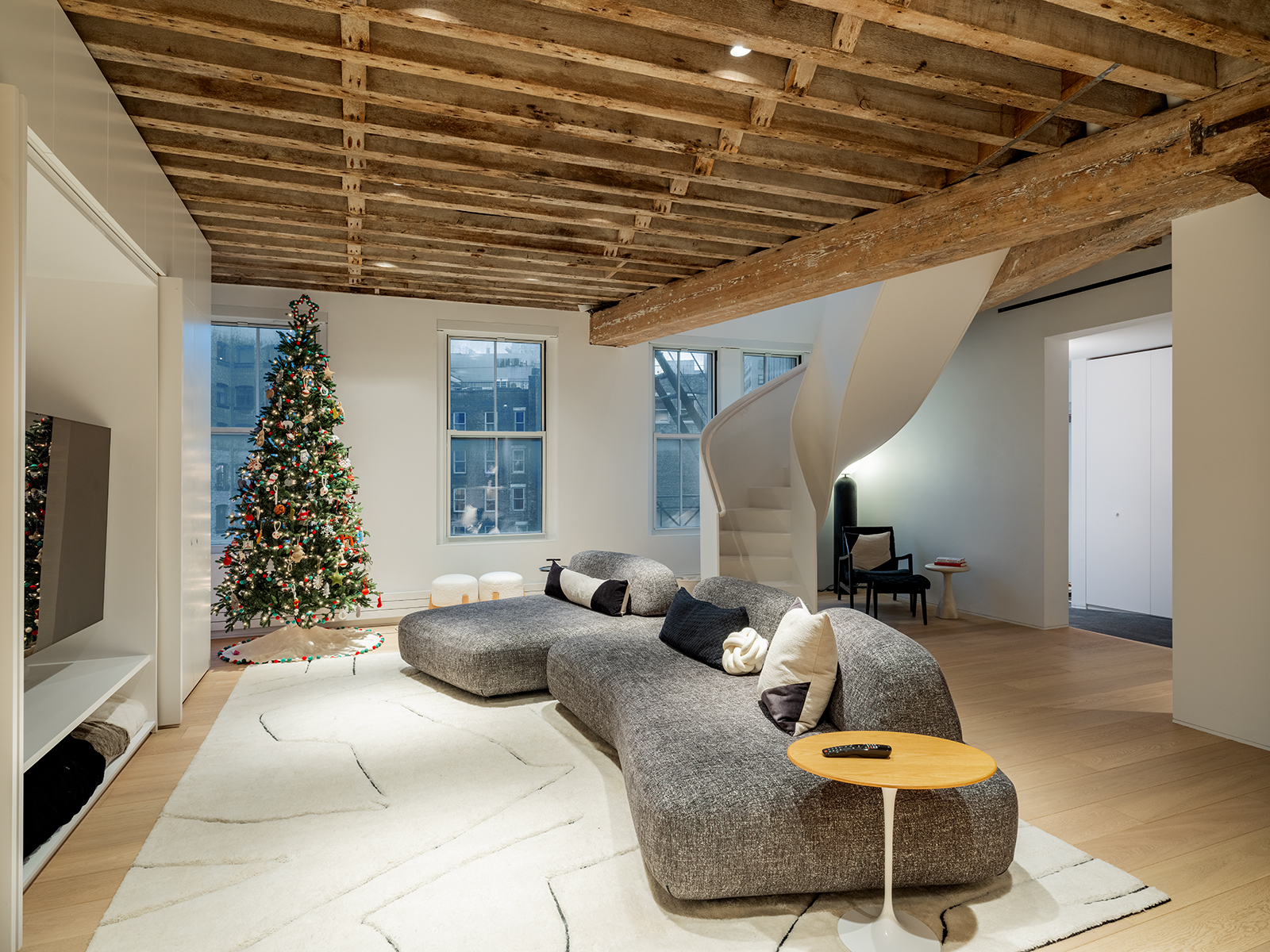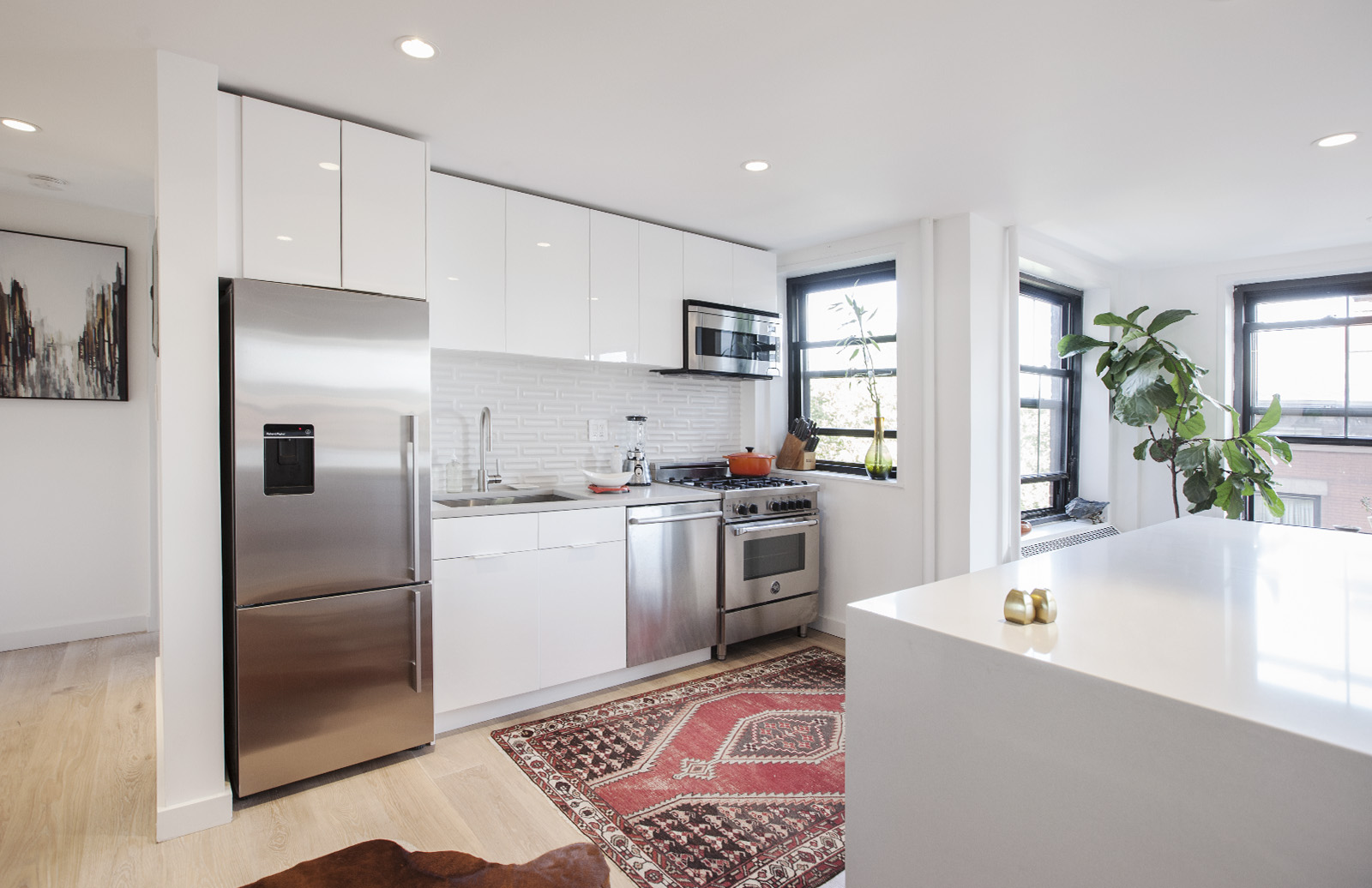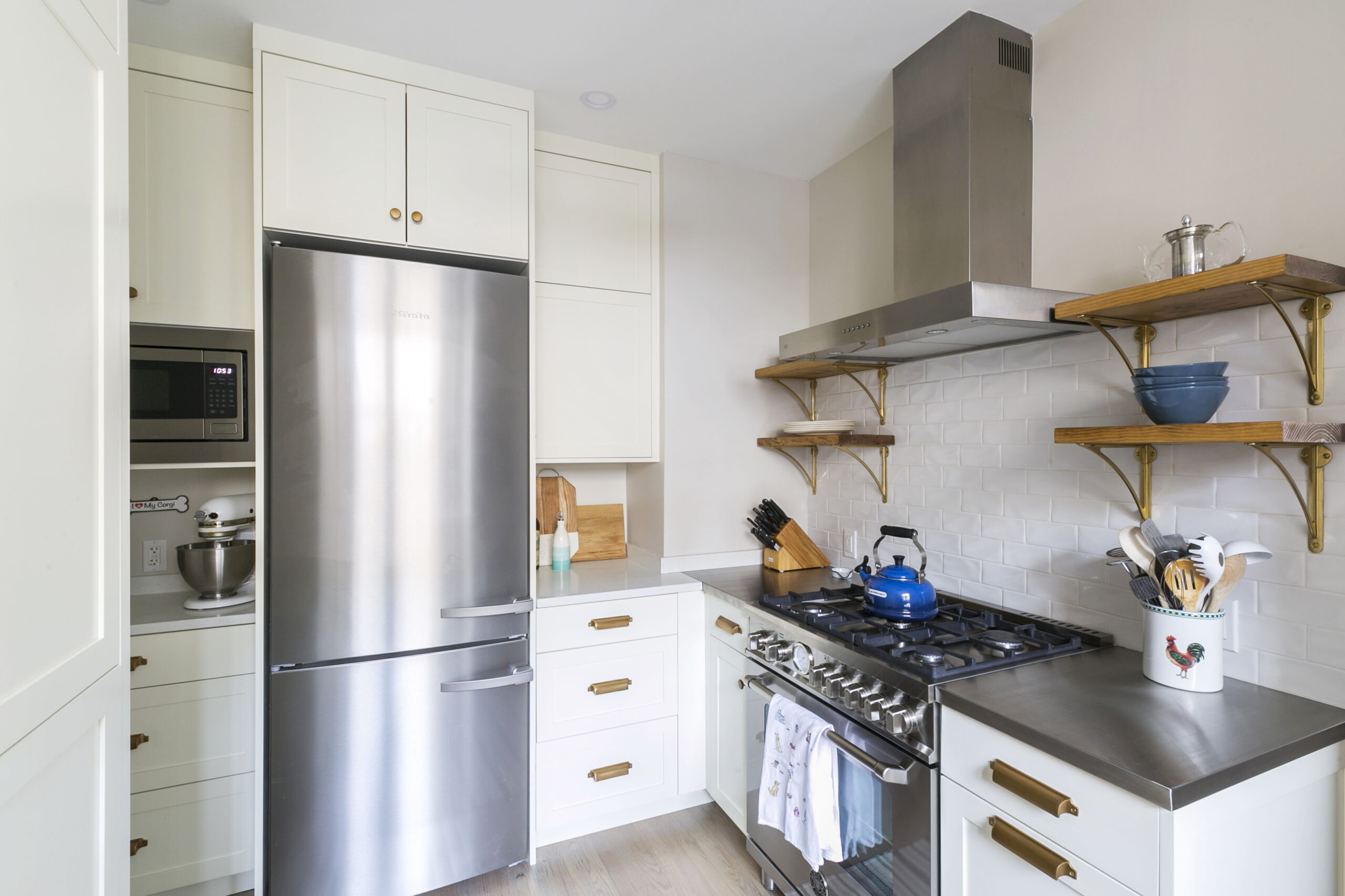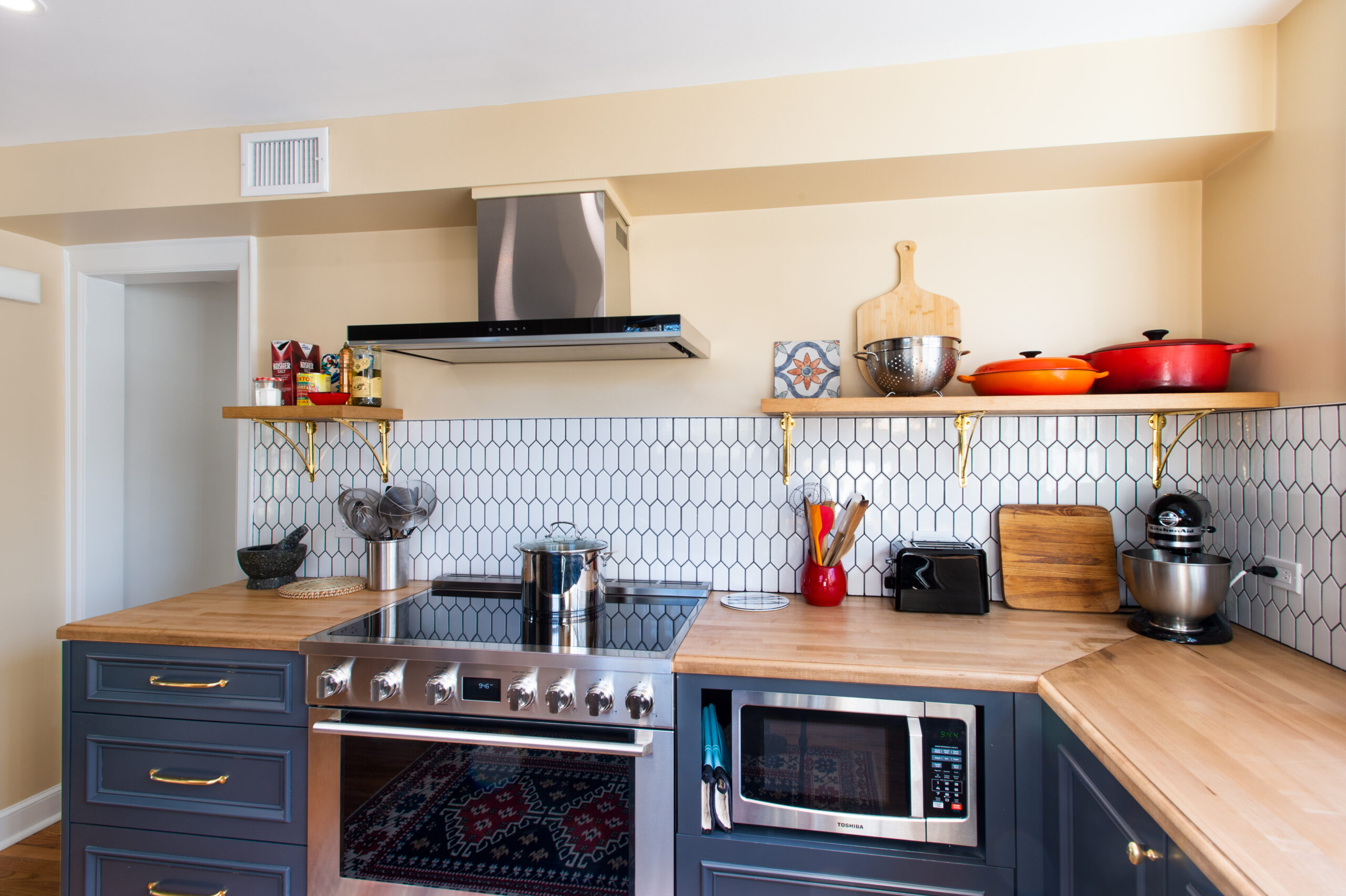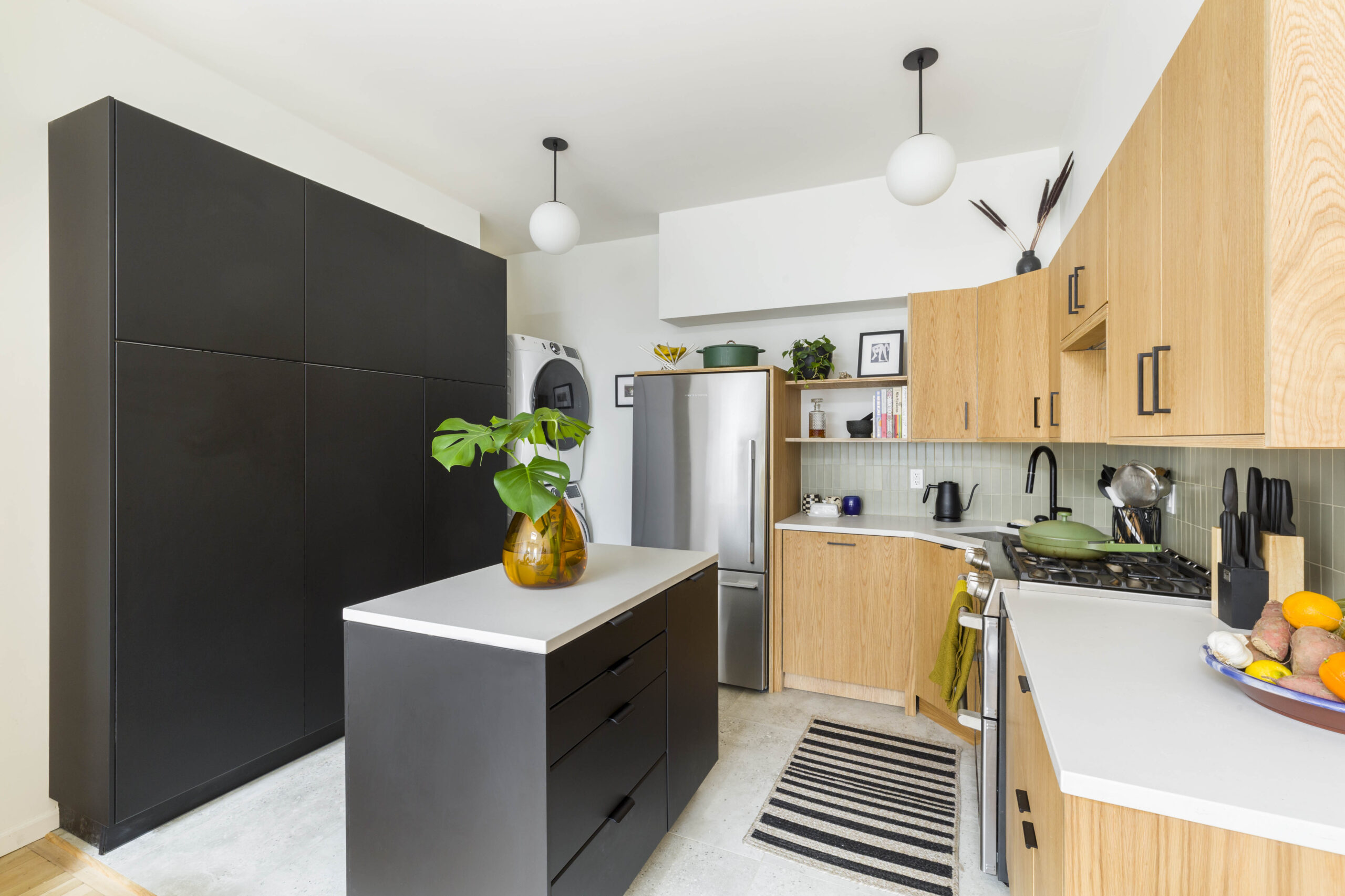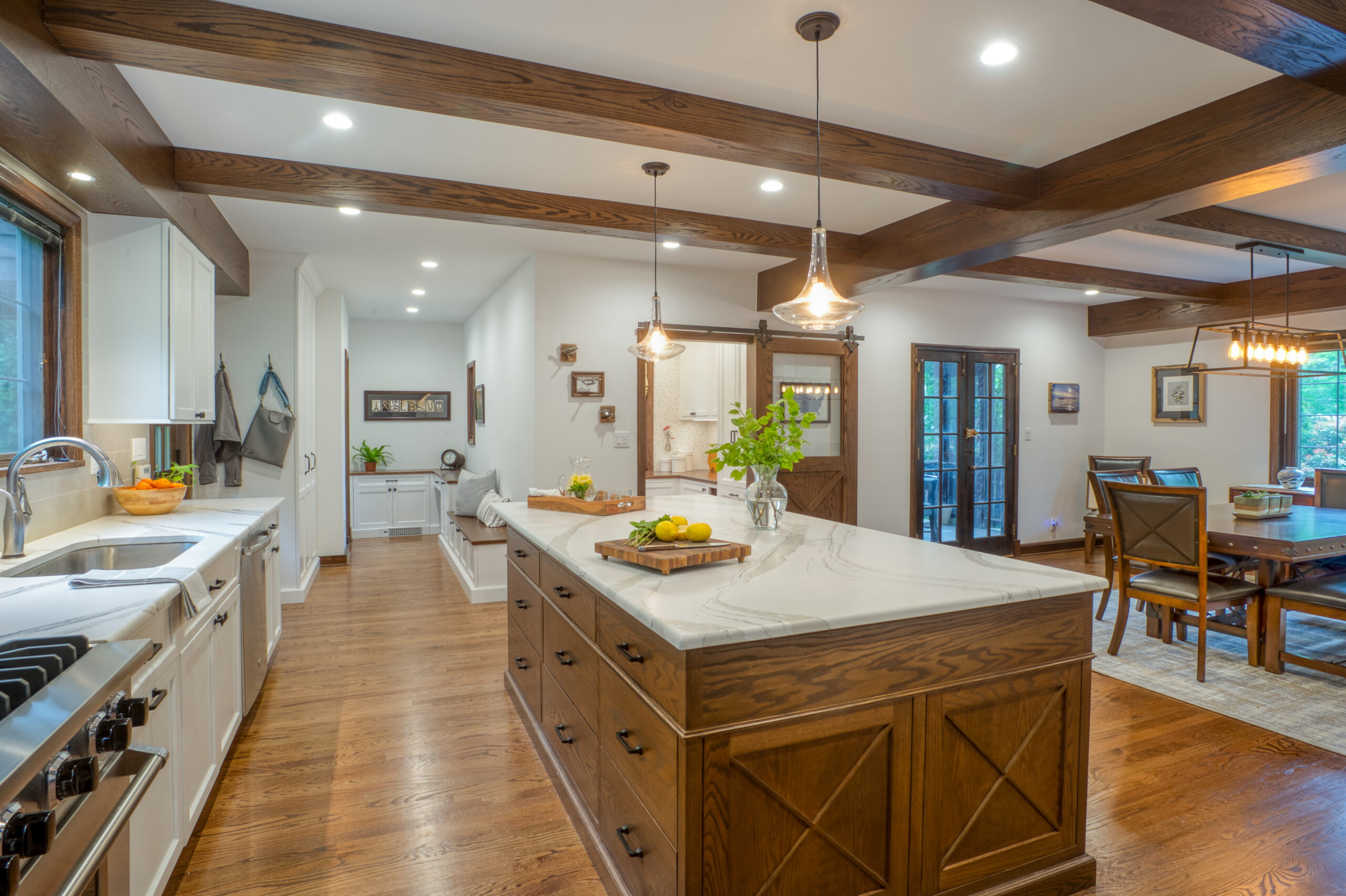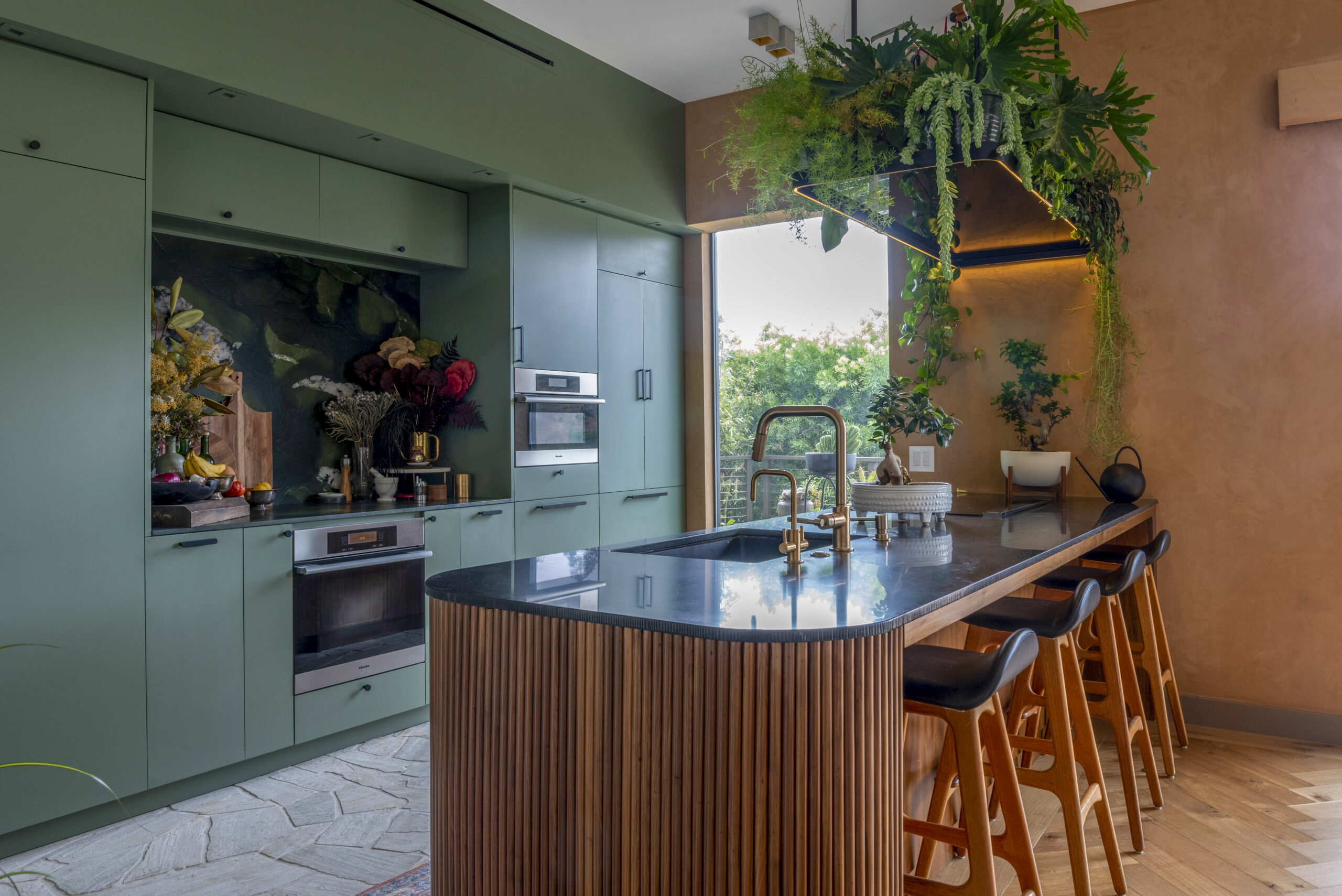Kitchen Lighting 101: Basics on Lighting Your Cookspace
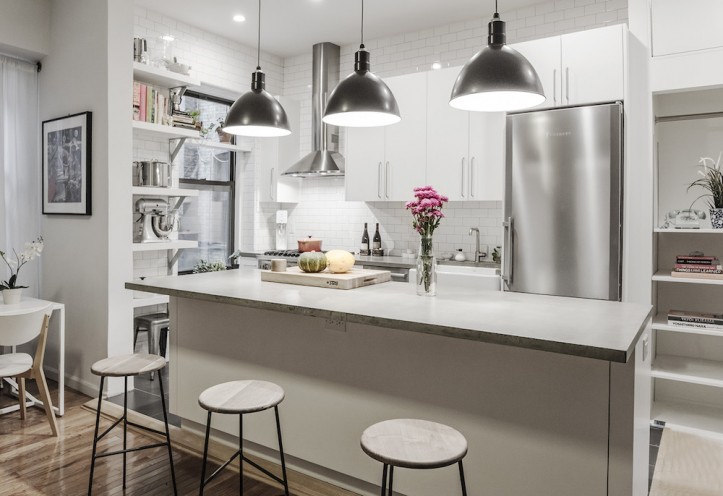
From pendant lighting to LED strips, here’s a primer on kitchen lighting
Kitchen planning often seems to be concentrated on the “big” stuff—cabinets, appliances, that gorgeous stone countertop you’ve had your heart set on. Lighting is not exactly overlooked, but it typically plays a secondary role to the more expensive and showy features. However, lights are a pivotal part of what makes the elements of a room work, and work beautifully. This is particularly true in the kitchen, where the proper brightness needs to be effective and practical, illuminating all the key areas of what is primarily a work environment. It should also bring to life the unique beauty of all the materials and details. A thoughtful mix of ambient, task, and accent lighting will do the job.
Begin your plan by re-examining how you use the kitchen and what you do where. Besides cooking and eating, it’s probably a room for socializing as well as office and schoolwork, and crafts or hobbies. Size, too will determine choice as well as placement.
Ambient lighting
Also referred to as general lighting, this type of illumination serves to light the entire space while creating a welcoming mood. The lighting should be bright but diffused, not focused like task lighting (see below). Overhead recessed lighting is the most common choice to brighten the space and eliminate shadows and glare while creating a warm environment. Dimmers are a must, and will help you control the degree of brightness at any given point during the day or activity.
If your kitchen is small, a chandelier or group of pendants above the eating area along with an overhead light in the work triangle could do the job for general illumination. However, if your kitchen is very large, with one or more islands, and part of a great room, then recessed lights will also serve to brighten transitional spaces, like a hallway into the kitchen, or the area between the island and clean-up and cooking areas.
Task lighting Sweeten brings homeowners an exceptional renovation experience by personally matching trusted general contractors to your project, while offering expert guidance and support—at no cost to you. Renovate expertly with Sweeten
Essential for any area where work takes place, task lighting assures a safe place in which to cut vegetables, wash dishes, or pay bills for that matter. For long runs of countertop, undercabinet lighting such as LED strips are ideal: they are hidden from view and don’t shine in anyone’s eyes, even from a distance, and the light is directed right on the counter. LED strips or ropes also stay cool and last a long time before requiring replacement.
For an island or breakfast bar, you can install recessed spotlights, or opt for a pendant (or cluster of pendants), to bring warm, focused lighting when you want to switch to a softer atmosphere once the meal is ready. Pendants also allow you style statement opportunities, with plenty of choices for shades and bulbs, and arrangements. Plan to place these and recessed lights on dimmers, too, so you can readily control their intensity.
You will need focused light over the sink; if the basin is placed under a window, opt for a recessed light in the ceiling overhead that you can control with its own switch. This is a good light to leave on solo in the kitchen after dark, as it lights the way to get a glass of water or return a dish from an evening snack.
Interior lighting is now available for drawers, too. LEDs, like Häfele‘s Loox system, illuminate deep corners, so you don’t have to go digging for that errant fork.
Task lighting can also be served by a few well-placed lamps, say, a floor lamp in the corner of a dining nook where you might also sit to do paperwork or work on a laptop, or a table lamp in a small desk area, if you want a more furnished look.
Accent lighting
As the name indicates, this type of lighting serves to single out features that deserve attention for their decorative qualities; it can also do double duty for task lighting. Most typical options are LED strips at the backs of shelves or cabinets to create a wash of light, highlighting dishware, glasses, or collections or an architectural detail like carved molding.
These strips also make a striking statement under the perimeter of a glass counter or a toe kick (the area between the base cabinet and the floor), to create visual interest and, in the case of the counter, keep someone from bumping into it late at night.
An important word about light switch placement
Plan for light switches at each entry point to the kitchen, to light the way to your destination. Have separate switches installed for each light area—each individual task area as well as the general lighting—to provide the greatest flexibility. Make sure your contractor includes dimmers. You might also want to investigate electronic sensors for automatic control and safety at night.
—
Ready to shed some light in your kitchen? Check out Sophia and Leon’s colorful take on undercabinet lighting with a bright LED strip that can be controlled via phone.
Sweeten handpicks the best general contractors to match each project’s location, budget, scope, and style. Follow the blog for renovation ideas and inspiration and when you’re ready to renovate, start your renovation on Sweeten.
